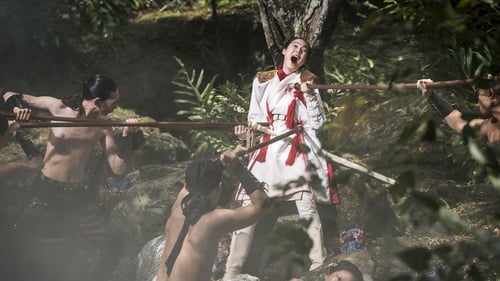
Director of Photography
In the early 1980s, hundreds of the so-called female revenging/exploitation films were produced in Taiwan. The 2020 version was based on the old genre to recreate a fantasy of the bloody revenge. The film is one of Su Hui-Yu’s “Re-shooting” series, which re-visits historical sources in Taiwan during the old days around the 1970s-1980s while the country was under martial law governance.

Director of Photography
In 1970, American futurist Alvin Toffler's iconic work Future Shock was published. One year later, a translation by Zhiwen Publishing House hit the market in Taiwan, thus introducing the writer's theories to readers of Chinese. The premise of the book can be summed up as: “A future that comes too quickly creates more apprehension than that of a foreign land. Future society will be stricken with a plethora of choices, throw-away society, information overload, and unethical technology.”

Cinematography
In artist Su Hui-yu’s signature style, a moody slow-motion pan captures a wild, glitter-scattered, blood-splattered orgy during the Tang dynasty. The film is an invocation of scenes from 1985 Taiwanese cult film Tang Chao Chi Li that only existed in the screenplay, unfilmed until now due to what can only be imagined as budgetary restrictions and censorship pressures during the Martial Law era. Presented without narrative context, the orgiastic murder scene plays out like an unsettling nightmare.

Sound Mixer
This film is Taiwan’s first protest music documentary, examining Jiao Gong Band 交工樂隊. Jiao Gong Band initially received attention from their efforts opposing the Meinong Dam project. After a brief pause in the Dam issue, Jiao Gong began following farm and farming issues, with their musical style quickly gaining increased popularity. This film discusses the uneasy situation faced by Taiwan’s farm youth. The youth that sets out to the city seeking to develop themselves carry feelings of homesickness from leaving their farm and land; on returning to their hometown after the bubble economy, they continue to push the elder generation to leave the village. Aside from this, because of their difficult social status, farm youth can often only search for Southeast Asian “foreign brides” when seeking marriage. Within the film, new residents (新住民) discuss their feelings and mindset in moving to Taiwan and collaborate with Jiao Gong throughout the album’s recording process.



